
Last week, I wrote about my experience of trying to get a partial refund from Virgin Australia after I was involuntarily downgraded from Business to Economy Class.
The process was clunky and communication from Virgin Australia was non-existent. But when I did finally receive a partial refund, the amount I received at least seemed fair. It was the difference between my Business Class airfare and what I would have paid to book the cheapest available Economy Choice fare on the same date that I originally booked my ticket.
Of course, Virgin isn’t the only airline that has to occasionally downgrade passengers. All airlines that offer more than one cabin class will need to downgrade passengers from time to time. This could be because the flight is oversold or cancelled, because of a faulty seat, or many other reasons.
But there’s a big difference in how different airlines compensate passengers for the inconvenience. Although Qantas’ refund turnaround times are a bit faster, its downgrade compensation policy lacks transparency.
Contents
An example of how Qantas calculates refunds for downgrades
In July, AFF member rosep booked a Qantas Business Class ticket from Melbourne to Cairns via Brisbane. The day before the flight, someone from Qantas called rosep to advise they would be downgraded to Economy on the Brisbane-Cairns sector. The Qantas agent said this was because the aircraft had changed to one with no Business Class available.
As it happens, the Boeing 737-800 operating this flight did in fact have a Business Class cabin. Qantas later admitted that Business was actually just overbooked. But this didn’t change the fact they involuntarily downgraded rosep to Economy. Qantas did not provide any other options.
This member originally paid $1,363.26 each way for a Business ticket in “D” class (which is not a Flexible Business fare). But Qantas only provided a refund of $294.04 following the downgrade.
According to the ticket, Qantas rebooked the Brisbane-Cairns flight into “H” class. This is one of the more expensive Flexible Economy fares, and they seem to have charged accordingly. But that doesn’t really seem fair when it’s Qantas needing the extra flexibility to move their customer – not the customer, who travelled on the same flight as originally booked.
For an involuntary downgrade, this AFF member felt that this was inadequate and complained to the airline. Qantas Customer Care responded that “having considered all the circumstances carefully, we feel that the conclusion we have come to was appropriate on this occasion”.

Recent examples of downgrade compensation on Classic Flight Reward bookings
In another recent example, an AFF member had used Qantas points to book two Classic Reward seats from Cairns to Canberra in Business. Qantas cancelled the direct flight and rebooked them via Brisbane, with the Brisbane-Canberra flight downgraded to Economy. Qantas did not proactively offer any compensation. The airline eventually only agreed to give 2,500 points per passenger after four extended phone calls.
We’re also aware of a Qantas passenger who was downgraded at the gate on a flight from Sydney to Perth. As their flight was booked as part of a Business Classic Reward booking from Los Angeles to Perth (via Sydney), Qantas only refunded 100 points for the involuntary downgrade. Qantas’ customer service agent claimed that this was the difference between what the passenger paid and what they would have paid if they’d originally booked the Sydney-Perth sector in Economy.

In another recent case that was in the news, Qantas downgraded a 78-year-old passenger on a Melbourne-Adelaide flight. They only offered 5,000 points as compensation after he complained.
In similar circumstances, an AFF member was recently downgraded after boarding the plane from Business to an Economy middle seat. This was to accommodate a deadheading staff member.
This has been an ongoing issue for years
These are just a few of the AFF members who have been involuntarily downgraded by Qantas and felt the compensation received was inadequate. Over the years, there have been plenty of similar stories posted on AFF. Here are a few more:
- Qantas Forces Business Passenger to Accept Downgrade (2019)
- Downgraded on Qantas Tickets at the Gate (2018)
- No Compensation for Qantas Downgrade to Jetstar (2018)
- No Compensation for Qantas Downgrade (2017)
- Qantas Downgrade Debacle (2016)
And in a particularly infamous example from 2014, an AFF member’s elderly parents were downgraded from a paid Business Class ticket to Economy on a Qantas flight from Los Angeles to Brisbane. Both were Gold frequent flyers. They were given USD700 in compensation for the downgrade, despite having spent $15,000 on return Business Class flights from Brisbane to New York (via Los Angeles).
Qantas’ downgrade compensation policy lacks transparency
Qantas is not alone in downgrading passengers. This happens all the time on other airlines for many different reasons. But the outsized number of complaints about Qantas downgrades indicates either that these are not handled well, or that the compensation is unfair.
If the compensation offered was reasonable, the number of complaints would surely be far lower. Which begs the question – how exactly does Qantas calculate the compensation owing for involuntary downgrades?
Prior to COVID-19, Qantas calculated the refund amount as the difference between the Business fare paid and the most expensive, fully-flexible Economy airfare. This was clearly unfair because most people would not have paid that much for an Economy ticket if they’d chosen to book Economy in the first place. It also does nothing to compensate for the inconvenience of flying in a lower cabin to the one booked.
Since then, Qantas has changed its policy. That’s probably a good thing, because the old policy was about as consumer-unfriendly as it gets. But we can’t actually tell you what Qantas’ new policy is because it’s no longer available to the public.
Australian Frequent Flyer asked Qantas how it calculates compensation for involuntary downgrades. The airline told us that the new compensation policy is fairer to passengers, particularly for international flight downgrades. But Qantas was not able to give us any specific examples of how it calculates downgrade compensation on paid airfares.
What we do know about Qantas’ current policy
Qantas did provide some information about how they calculate refunds for involuntary downgrades, which it says are a “last resort”.
“In these circumstances, customers are offered the choice of a refund of the difference in fares or the option to travel in their booked class on another available flight,” a Qantas spokesperson told Australian Frequent Flyer.
“The refund offered to customers can depend on factors including the length of their flight, the change in cabin, and the original fare class booked.
“This means that in some cases, customers are offered compensation that far exceeds the difference in the fare booked and the fare they travelled on. For example, customers on international services can be offered between 50 – 100% of the base fare they paid for the flight sector impacted by a downgrade.
“There are also circumstances where customers are offered additional support in recognition of particularly challenging experiences. We regularly review the compensation to make sure it’s fair and appropriate for the inconvenience of a downgrade.”
Australian Frequent Flyer understands that the fare class used when calculating the fare difference depends on the original fare purchased. For example, a flexible Business fare may be repriced at a flexible Economy level. It is not necessarily based on the lowest Economy that would have been available at the time of booking.
Qantas also says that customers should be informed of the compensation amount before accepting either the downgrade or an alternative flight. But this doesn’t always seem to happen in practice.
Downgrade compensation on Classic Reward bookings
On Classic Flight Reward bookings, Qantas tells us that the downgrade compensation should be the difference in points between the cabin booked and the cabin flown. On bookings with multiple flight sectors, this should be based on the difference in points required to book a standalone ticket on the downgraded sector.
But if that’s the case, why did a passenger downgraded from Business to Economy on a flight from Sydney to Perth earlier this year only receive a refund of 100 points – roughly worth around $1?
We put this question to Qantas. The airline told us that the contact centre was incorrect, and that this passenger should have received a refund of 23,500 Qantas points. That’s the difference between a standalone Business Reward and Economy Reward on the Sydney-Perth route.
After we got in touch, Qantas said they’d follow up with the passenger and refund the proper amount. But this passenger had already tried complaining to Qantas directly and was told by the airline’s contact centre after they “followed up with [their] team” that the refund of 100 points was correct. So, if Qantas’ official policy is to refund the points difference for the standalone impacted flight, the contact centre staff don’t seem to be aware of this.
Qantas said it would remind its contact centre staff of how to calculate refunds for involuntary downgrades.
Even when the policy is applied correctly, Qantas doesn’t appear to give passengers any additional compensation for the inconvenience of being downgraded on reward bookings.
Qantas refund turnaround times
The good news is that Qantas seems to be a bit faster than Virgin Australia to provide refunds. Its current average refund turnaround time is within ten days.
“The refund process for a downgrade is generally automatic, however it depends on the circumstance of the downgrade, with some refunds requiring manual processing,” the Qantas spokesperson said.
“Where possible, we proactively contact customers once we know that they will be impacted by a downgrade to advise them of their options and start the partial refund process.
“If the downgrade happens at the airport, customer service agents will start the process for partial refund. If a customer books through a travel agent, they will need to contact their agent to start the refund process.”

Qantas customers deserve better
Unfortunately, since Qantas’ refund policy is not public, we can’t really verify whether it has actually improved in recent years. But we’ve seen plenty of examples of customers who were short-changed.
The lack of transparency also means customers can’t verify that the compensation they’ve received is correct. That’s a problem when we’ve found multiple examples of customers receiving less compensation than they should.
We believe Qantas customers deserve better than this. We also believe the government should consider mandatory compensation (in addition to the fare difference) for involuntary downgrades. Such a scheme could also compensate passengers who are bumped off overbooked flights or significantly delayed. This could work similarly to the system in the European Union. Without this, airlines have little financial incentive to avoid these situations.
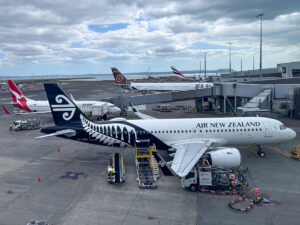


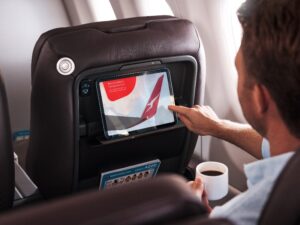
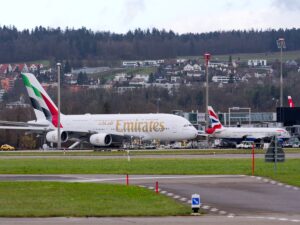


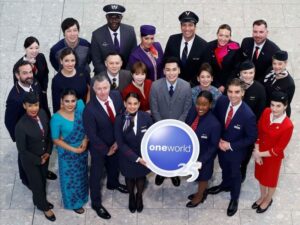

































































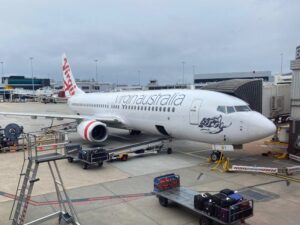






Community Comments
Loading new replies...
Join the full discussion at the Australian Frequent Flyer →